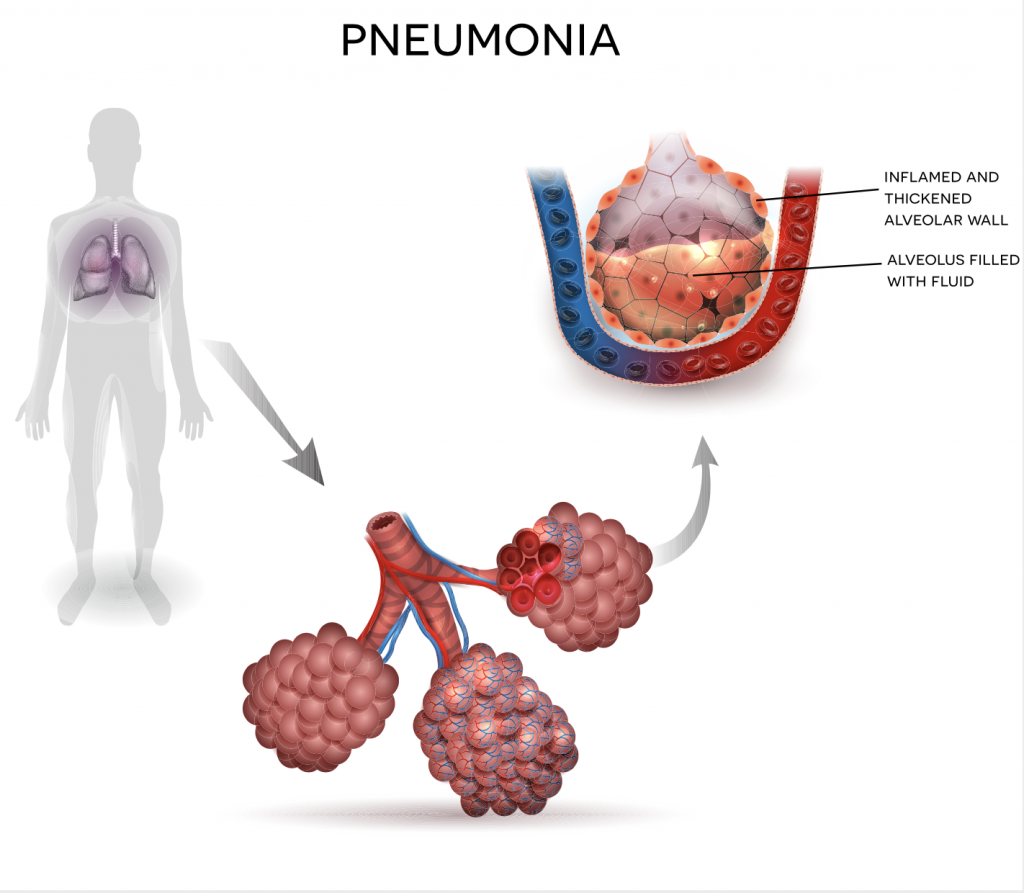 Source: bing.com
Source: bing.comTable of Contents
Introduction
As a new parent, you want to do everything you can to keep your baby healthy. However, sometimes illnesses can still occur, such as pneumonia. This can be a scary diagnosis, but by understanding how babies can develop pneumonia, you can take steps to prevent it from occurring or catch it early.
What is Pneumonia?
Pneumonia is an infection that inflames the air sacs in one or both lungs. The air sacs may fill with fluid or pus, making it difficult to breathe. Pneumonia can be caused by bacteria, viruses, or other organisms. It can affect people of all ages, but babies and young children are particularly vulnerable.
How Do Babies Develop Pneumonia?
There are several ways that babies can develop pneumonia. Here are some of the most common:
1. Infection from a virus or bacteria: Pneumonia can be caused by a variety of viruses and bacteria, including the flu, RSV, and Streptococcus pneumoniae. Babies can pick up these organisms from other people who are sick or from contaminated surfaces.
2. Aspiration: This occurs when a baby inhales food, liquid, or other substances into their lungs. Aspiration can be caused by a feeding problem or a medical condition such as acid reflux. It can lead to pneumonia if the substance that was aspirated is contaminated with bacteria.
3. Weak immune system: Babies have immature immune systems that are still developing. This makes them more susceptible to infections, including pneumonia.
4. Exposure to smoke: Babies who are exposed to secondhand smoke or other pollutants are at higher risk for developing pneumonia.
Preventing Pneumonia in Babies
While it’s not always possible to prevent pneumonia, there are steps you can take to reduce your baby’s risk:
1. Wash your hands: Make sure you and anyone who handles your baby’s food, bottles, or toys wash their hands frequently.
2. Keep your baby away from sick people: Try to avoid exposing your baby to people who are sick, especially if they have a fever or cough.
3. Get vaccinated: Vaccines can protect your baby from many of the viruses and bacteria that can cause pneumonia, such as the flu and pneumococcus.
4. Avoid smoking: If you smoke, quit. If others in your household smoke, ask them to smoke outside or quit as well.
Recognizing the Symptoms of Pneumonia in Babies
It’s important to be able to recognize the signs of pneumonia in babies. Here are some symptoms to watch out for:
1. Fever: A fever is often the first sign of pneumonia.
2. Cough: A persistent cough that doesn’t go away can be a sign of pneumonia.
3. Rapid breathing: If your baby is breathing faster than usual, it could be a sign of pneumonia.
4. Wheezing: This is a high-pitched whistle sound that can be heard when your baby breathes.
5. Lethargy: If your baby seems unusually tired or has a lack of energy, it could be a sign of pneumonia.
If you suspect your baby has pneumonia, it’s important to seek medical attention right away. Pneumonia can be serious, especially in young babies.
Conclusion
Pneumonia is a serious illness that can affect babies and young children. By understanding the causes and symptoms of pneumonia, you can take steps to prevent it from occurring or catch it early. Remember to wash your hands frequently, keep your baby away from sick people, and get vaccinated. If you suspect your baby has pneumonia, seek medical attention right away.
Frequently Asked Questions
Q: Can pneumonia be cured?
A: Yes, pneumonia can be cured with antibiotics if it’s caused by bacteria. However, if it’s caused by a virus, antibiotics won’t work.
Q: What are some complications of pneumonia in babies?
A: Complications of pneumonia in babies can include dehydration, sepsis, and respiratory distress syndrome.
Q: Can pneumonia be prevented with a healthy diet?
A: While a healthy diet is important for overall health, it won’t necessarily prevent pneumonia. However, a healthy immune system can help fight off infections.
Q: Can pneumonia be spread through breast milk?
A: No, pneumonia is not spread through breast milk.
Q: How long does it take for a baby to recover from pneumonia?
A: The recovery time for pneumonia can vary depending on the severity of the illness. In general, it can take several weeks for a baby to fully recover.
